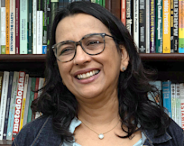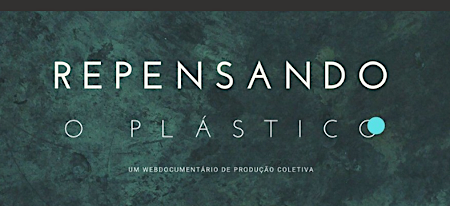
As the world’s fourth-largest producer of plastic waste, Brazil faces an uphill battle, with only an estimated 1.28% of the 11.4 million tons of waste it produces annually being recycled. In partnership with the University of Surrey and Wollongong, researchers from the University of São Paulo, in Brazil, have released a new web documentary looking at the history, present and future of the plastic pollution crisis from a Brazilian perspective, says research group leader Sylmara Gonçalves Dias and colleagues Isabela B. E. Carvalho, Isabella Vallin and Naiara Francisco.
Faced with a catastrophic scenario in the world, warnings about climate change are being carried out not only in scientific articles or by journalists, but by filmmakers. No fiction. Divided into three episodes of about 30 minutes each, the web documentary “Rethinking Plastic” is available on the Youtube channel of the interdisciplinary Research Group of Organizations, Society and Sustainability – NOSS (Portuguese acronym).
If you look around, you can see that almost everything is produced with plastic. We are almost dependent on one of the most harmful materials to our planet and to our life. But, because of the ease that “disposable” items bring us, we experience the “convenience of buying, discarding and being happy”.
The sentence is from the professor at the University of São Paulo (USP) and researcher at the Research group in Organizations, Society and Sustainability (NOSS), Sylmara Gonçalves Dias, one of the interviewees in the web documentary.

The first episode “Plastic in the Anthropocene” analyzes the historical perspective of a material that, for decades, was considered a symbol of modernity. The second deals with the limits of recycling and raises questions about how to deal with plastic pollution.
One of the interviewees, the councillor of São Paulo, Xexéu Tripoli, says that Brazil is totally behind, “because it is not generating public policies for the population to reduce single-use plastic. It is going against the grain, feeding not only deforestation but also the unbridled production of products that are harmful to health and the environment”.
The third episode seeks to analyze and discuss the public policies which have emerged in other countries and in international diplomacy to face the challenges of plastic pollution.
The web documentary is one of the outcomes of the project Rethinking Plastics Pollution Post-Pandemic that brings together an interdisciplinary team of researchers to form the UGPN Rethinking Plastics Network. The project is funded by the University Global Partnership Network (UGPN) and approved by the UGPN 2020-2021 Notice.

Sylmara Gonçalves Dias is an Associate Professor and leader of NOSS, an interdisciplinary environmental research group at the University of São Paulo, Brazil.

The Anthropocene era has been extraordinary but its challenges are coming home to us humans now – climate change and deforestation (an especially challenging issue in Brazil) can often be seen as standalone issues but the connections are acute. Not least of these connections is the wicked problem of plastics which is intertwined with these catastrophic events. These are really thought-provoking documentaries led by the brilliant Professor Sylmara and her University of São Paolo team: Isabela, Isabella and Naiara.